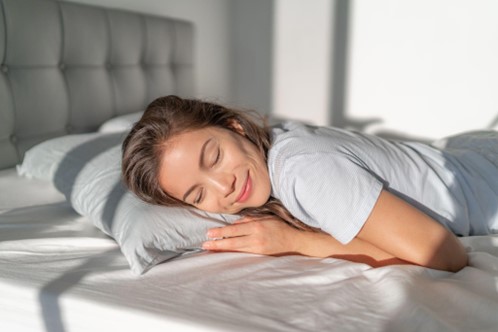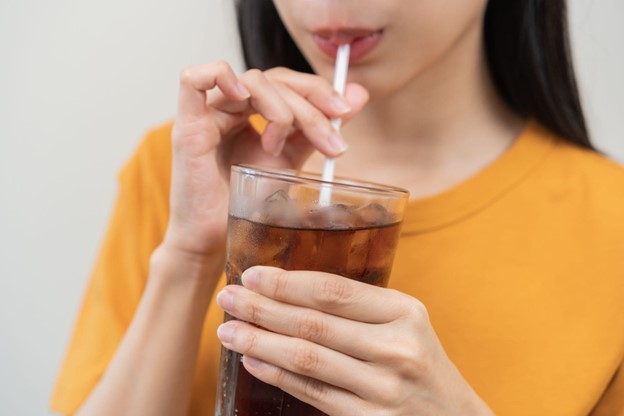How Does Soda Affect Sleep?
Getting a good night of sleep can be hard, and tossing and turning might be more likely if your home doesn’t have adjustable beds. Good sleep is more likely when the bedroom environment is dark, quiet and cool, but what you do before bedtime also affects the quality of your sleep quite a bit.
You may know that using electronics within an hour or so before bedtime emits blue light that makes it harder to get to sleep, but have you considered the impact of your beverage choices throughout the day? If you’re wondering whether soda affects your sleep, the answer is yes. Soda impacts sleep in mostly negative ways and for several different reasons.
Table of Contents
4 Ways Soda Impacts Sleep
Research has confirmed that people who sleep fewer hours per night consume more soda than others. That could imply that sodas affect sleep negatively, but it could just mean that sleep-deprived individuals are relying on sugar and caffeine to get through the day.
Unfortunately, it can become a cycle of both things happening simultaneously. Soft drinks do impact sleep, and they do so primarily because of the caffeine and sugar content. The carbonation of the liquids might play a role, and how soft drinks impact dopamine levels can cut both ways.

Caffeine
Filling your home’s bedrooms with beds featuring adjustable bases should let everyone find their best individual sleeping circumstances, but the amount of caffeine flowing through their veins still matters. Sodas are well-known for their caffeine levels, although they do vary from one drink to the next. Still, any amount of caffeine can delay the onset of sleep.
Any caffeine consumed in the final eight hours of a person’s day can cut an hour or more off their total sleep the following night. Slumber that they do get will involve more light sleep and less deep sleep that helps the brain store long-term memories and process the information of the previous day. Caffeine can delay a person’s natural internal clock, and the diuretic nature of caffeine means more trips to the bathroom, promoting sleep interruptions and dehydration.
Adjustable mattresses are great for bedrooms you want to get great sleep in, but you also need to think about the adenosine receptors in your brain. Those are neurological structures responsible for promoting physical sleep. Unfortunately, caffeine’s molecular structure closely resembles what your receptors typically bind to. That means that caffeine can latch onto your adenosine receptors and wind up blocking them. The impact of caffeine becomes stronger as most adults get older.
Sugar
Caffeine isn’t the only culprit in soda that impacts sleep. Any soft drink that contains sugar can deleteriously affect your night in bed. Blood sugar levels can spike after drinking something with a high sugar content, and then those levels will crash later. This results in more trips to the bathroom, thirst and hunger. High blood sugar levels can wake you up in the middle of the night and make it harder to get back to sleep.
Sugar stimulates brain activity that delays sleep, contributes to insomnia and boosts inflammation. While sugar in sodas can impact sleep badly, natural sugars in fruit might not do the same thing. Fruits have fiber that slows how quickly the human body absorbs sugar, and that helps prevent blood sugar spikes.
Carbonation
While caffeine and sugar are definitely potential sources of sleep degradation from sodas, carbonation may be another factor in terms of sleep quality. The impact is not likely as significant as those of caffeine or sugar, and carbonation can possibly help or hurt in different circumstances. Consuming carbonated beverages before sleep might result in heartburn, reflux and bloating. These conditions might be more likely when lying on a flat surface such as your bed.
When the human stomach warms up carbonation, gas is released. The result can be burping, which makes it harder to relax into sleep or stay asleep. Anyone suffering from gastrointestinal issues, including GERD, acid reflux and IBS, might be more susceptible to this. Alternatively, some individuals feel better after consuming carbonated beverages because they can soothe upset stomachs, aid digestion and help with blood sugar levels, inflammation and cholesterol. Research into all this is ongoing and inconclusive so far.
Dopamine Levels
Dopamine is called the “happy hormone” because it feels good. Soda triggers your brain to release it, and the caffeine and sugar drive much of this. Dopamine activates the reward centers in your mind, and you start thinking faster. People dealing with depression and anxiety might actually find that soft drinks bring a calming response instead of the stimulant effect most others get.
Interestingly, some individuals find it easier to fall asleep after a soda because of the dopamine buzz. Unfortunately, the feeling doesn’t last long, and they might wake back up shortly. Also, soda dependency can be a chronic problem, as more of it becomes necessary to trigger a soda response.

Recovering Your Sleep Debt Is Possible
Giving up late-day soda should start improving your sleep in the coming nights, but your body might need days or even weeks to catch up on its sleep debt. Once you find a comfortable sleep rhythm, make it a routine that you follow on a daily basis.
If your sleep interferes with daily activities or you’re still struggling, consult your medical team. Your doctor can test for, diagnose and treat underlying sleep disorders. It’s also wise to take this opportunity to reassess your bedroom furniture and environment and adapt them for better slumber throughout the night.


